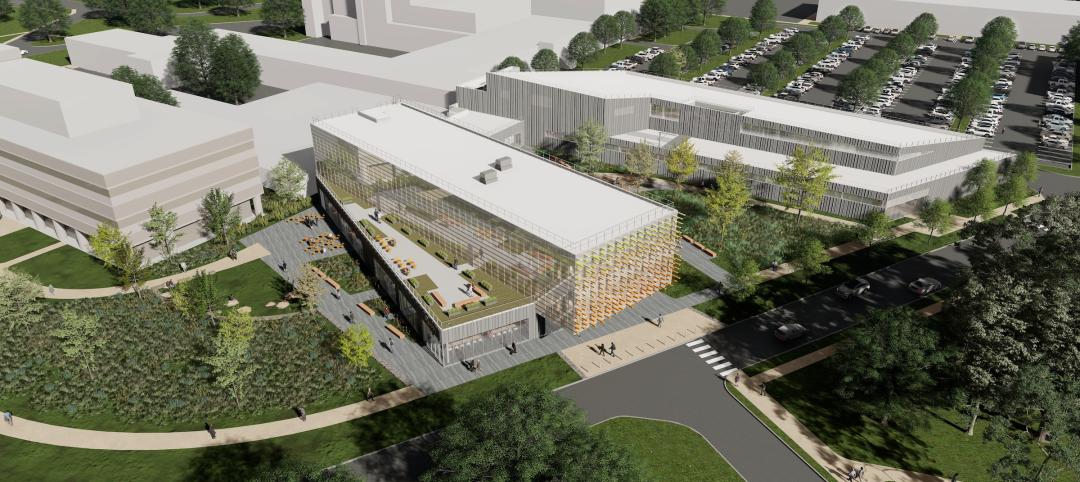The American Institute of Architects (AIA) and the National Council of Architectural Registration Boards (NCARB) are among several organizations who have helped found the Alliance for Responsible Professional Licensing (ARPL)—a new coalition of technical professions focused on educating policymakers and the public about the importance of rigorous professional licensing standards.
ARPL is a unique coalition that brings together professional organizations and their registration boards at a time when there is significant concern over the appropriate level of licensing required by law. The coalition was formed to ensure their voices are heard by policymakers and the public amid the growing debate around licensing.
“NCARB and AIA may approach the licensing debate from different perspectives but we fundamentally agree that rigorous standards must be maintained in order to protect the public we both serve,” said NCARB CEO Michael J. Armstrong. “Complex professions are at risk of being swept up in broad calls to reduce licensing requirements for occupations and vocations. It is important for us to work with other technical professions to ensure public safety isn’t compromised by broad brush deregulatory efforts.”
“When an architect designs a hospital or a school, the public must have confidence in its safety and structural integrity,” said AIA EVP/CEO Robert Ivy, FAIA. “The best way to maintain the public’s confidence is to continue to require that architects demonstrate rigorous and ongoing education, examination, and experience. Attempts to weaken or undermine professional licensing requirements for architects not only harm our profession, but could potentially endanger public health, safety, and welfare.”
The formation of the Alliance reflects mutual interest between regulatory organizations and their professional society counterparts in making the case for reasonable regulation. Although the regulatory associations’ mission is the protection of public, and the professional societies are the voices of their respective professions, recent trends and challenges in the regulatory and legislative environment have called for these groups to proactively engage together in the narrative around the importance of reasonable regulation and licensing.
In addition to AIA and NCARB, members of the ARPL include the American Institute of Certified Public Accountants (AICPA), American Society of Civil Engineers (ASCE), Council of Landscape Architectural Registration Boards (CLARB), National Association of State Boards of Accountancy (NASBA), National Society of Professional Engineers (NSPE) and National Council of Examiners for Engineering and Surveying (NCEES).
Related Stories
Women in Design+Construction | May 28, 2024
Commerce Department launches Million Women in Construction Community Pledge
The U.S. Department of Commerce launched its Million Women in Construction Community Pledge this month to boost the ranks of women in construction companies. Federal investments are creating a construction boom that is increasing job opportunities for construction and trade workers.
Laboratories | May 24, 2024
The Department of Energy breaks ground on the Princeton Plasma Innovation Center
In Princeton, N.J., the U.S. Department of Energy’s Princeton Plasma Physics Laboratory (PPPL) has broken ground on the Princeton Plasma Innovation Center (PPIC), a state-of-the-art office and laboratory building. Designed and constructed by SmithGroup, the $109.7 million facility will provide space for research supporting PPPL’s expanded mission into microelectronics, quantum sensors and devices, and sustainability sciences.
MFPRO+ News | May 24, 2024
Austin, Texas, outlaws windowless bedrooms
Austin, Texas will no longer allow developers to build windowless bedrooms. For at least two decades, the city had permitted developers to build thousands of windowless bedrooms.
Resiliency | May 24, 2024
As temperatures underground rise, so do risks to commercial buildings
Heat created by underground structures is increasing the risk of damage to buildings, recent studies have found. Basements, train tunnels, sewers, and other underground systems are making the ground around them warmer, which causes soil, sand, clay and silt to shift, settle, contract, and expand.
Sports and Recreational Facilities | May 23, 2024
The Cincinnati Open will undergo a campus-wide renovation ahead of the expanded 2025 tournament
One of the longest-running tennis tournaments in the country, the Cincinnati Open will add a 2,000-seat stadium, new courts and player center, and more greenspace to create a park-like atmosphere.
Mass Timber | May 22, 2024
3 mass timber architecture innovations
As mass timber construction evolves from the first decade of projects, we're finding an increasing variety of mass timber solutions. Here are three primary examples.
MFPRO+ News | May 21, 2024
Massachusetts governor launches advocacy group to push for more housing
Massachusetts’ Gov. Maura Healey and Lt. Gov. Kim Driscoll have taken the unusual step of setting up a nonprofit to advocate for pro-housing efforts at the local level. One Commonwealth Inc., will work to provide political and financial support for local housing initiatives, a key pillar of the governor’s agenda.
Building Tech | May 21, 2024
In a world first, load-bearing concrete walls built with a 3D printer
A Germany-based construction engineering company says it has constructed the world’s first load-bearing concrete walls built with a 3D printer. Züblin built a new warehouse from a single 3D print for Strabag Baumaschinentechnik International in Stuttgart, Germany using a Putzmeister 3D printer.
MFPRO+ News | May 21, 2024
Baker Barrios Architects announces new leadership roles for multifamily, healthcare design
Baker Barrios Architects announced two new additions to its leadership: Chris Powers, RA, AIA, NCARB, EDAC, as Associate Principal and Director (Healthcare); and Mark Kluemper, AIA, NCARB, as Associate Principal and Technical Director (Multifamily).
MFPRO+ News | May 20, 2024
Florida condo market roiled by structural safety standards law
A Florida law enacted after the Surfside condo tower collapse is causing turmoil in the condominium market. The law, which requires buildings to meet certain structural safety standards, is forcing condo associations to assess hefty fees to make repairs on older properties. In some cases, the cost per unit runs into six figures.

















